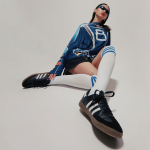Nike is still clearly the brand to beat among younger consumers, but support for the brand wanes as teens move into their college years. Conversely, Adidas picks up steam with the college and post-college consumer, a key age group when long-term brand loyalty is thought to be established.
Those are just two key findings in the recently released 2010 Brand Strength Report – Young Consumer Edition produced by The SportsOneSource Group. The report, a subset of the broader 2010 Brand Strength Report, looks into the purchasing and brand preference patterns of consumers between the ages of 13 and 24. This age group represents a significant portion of sales for many of the brands measured in the 2010 Brand Strength Report, which in turn makes their responses highly valuable. Over 1,000 young consumers in this age group were surveyed as part of the 2010 Brand Strength Report, which provides an accurate look into how this specific age group feels about brands and how they spend their money.
The Brand Strength Index, which was developed in early 2009 by The SportsOneSource Group, was used as a way to determine brands’ relative strength in the minds of the consumer. It should be no surprise that Nike was the strongest brand in the minds of a young consumer.
But Nike’s BSI of 742.8 among these younger consumers was just a few points higher than the brand’s still-impressive index among the entire respondent population.
The other comparative measure used to rate brands involved having respondents rate specific attributes of the footwear and apparel for the brands they had purchased in the past year. While Nike was the strongest brand when rated by the BSI, other brands such as Jordan, The North Face and Under Armour began to emerge when rating their specific products on different attributes. Jordan was rated highly across many of the attributes with regards to footwear, while The North Face and Under Armour both received high marks when Young Consumers were rating each brand’s apparel line.
Overall, the Young Consumer Report paints a pretty clear picture of how Young Consumers think and for which brands/products they have an affinity.
Overall, the Young Consumer Report paints a pretty clear picture of how Young Consumers think and for which brands/products they have an affinity.
The Nike brand finished over 100 points higher than the next highest brand in the Brand Strength Index. Nike’s lowest BSI rating was among the 18-24 year old group, a shift that may not be that surprising considering the ubiquity of the brand and this an age group’s propensity to drift toward a more individualistic expression in the apparel and footwear they purchase.
While Nike finished with a BSI score well over 700 points overall, both genders, and the 13-17 yr olds, it dropped to 683 among the 18-24 year old group. Adidas has a solid hold on the second spot finishing nearly 100 points higher than Under Armour in the #3 spot. Adidas performed slightly better among the male young consumers than the female young consumers. The brand scored over 100 points higher than the next highest brand among male young consumers, and about 90 points higher than the next brand among females in this age group.
Adidas still finished second among each age group that made up the Young Consumer Report, but there was a larger disparity in its overall score. Adidas finished 39 points higher in the 18-24 yr old group than the 13-17 yr old group.
Under Armour replaced New Balance in the #3 spot on the Brand Strength Index when looking at the Young Consumer BSI versus the BSI for all age groups combined. Reebok, while still # 4 in the BSI index in both the Young Consumer segment and the overall groups, saw their BSI rating drop more than 60 points in the Young Consumer BSI.
The North Face, which rounds out the top five brands in the Young Consumer BSI, was the highest rated of the brands typically known for outdoor products. The brand scored significantly higher among female young consumers than males, receiving a BSI score more than 100 points higher among female young consumers. On the other side of the outdoor range, Columbia came in at the #10 spot in the Young Consumer BSI ratings, but joined Reebok and New Balance as the only brands in the top ten that scored lower with young consumers than the overall respondent group of all ages.
Action Sports footwear brands are well represented among Young Consumers with Vans, DC Shoes and Airwalk all represented among the top 50 brands.
The Brand Strength Index was originally formulated in early 2009 by The SportsOneSource Group in an effort to more effectively measure the overall consumer perception of a specific brand. Each brand measured was tested across four main criteria, with those criteria each individually weighted to reflect their importance in the overall indexing formula. All four criteria were then combined using a proprietary formula to generate a single Brand Strength Index for each qualifying brand.
Look for all the background on an individual brand’s strength index score in the SportsOneSource 2010 Brand Strength Report. The Brand Strength Report is available now and is available in various formats, including report segments based on age, race, gender and household income. Specific Brand Strength Index reports have been developed for 72 brands.
The results of the survey can be projected to the U.S. population with a margin of error of +/- 1.5 percentage points.
To find out more about the report, contact The SportsOneSource Group at 704.987.3450 or e-mail at: research@SportsOneSource.com.














